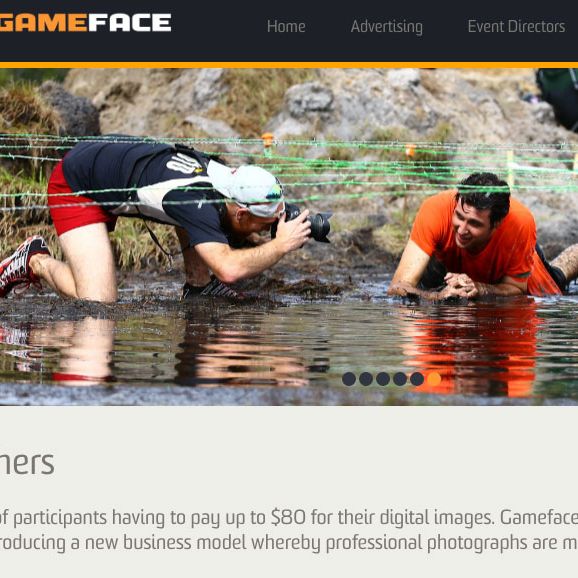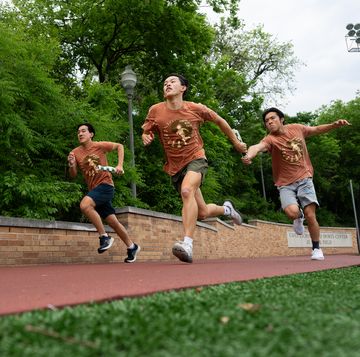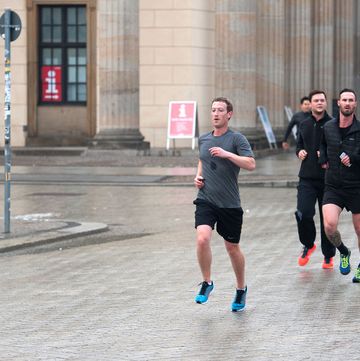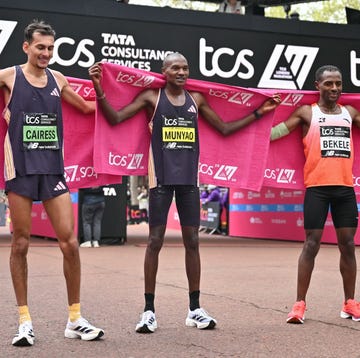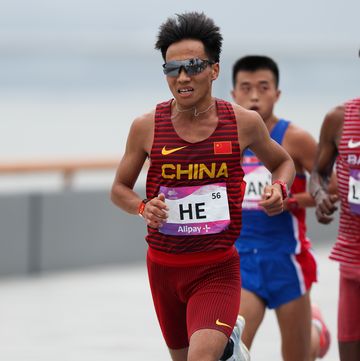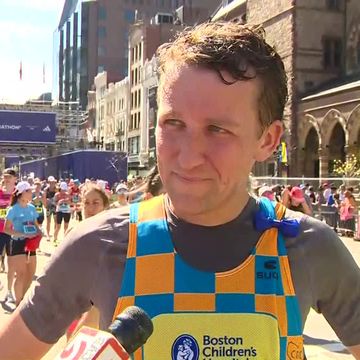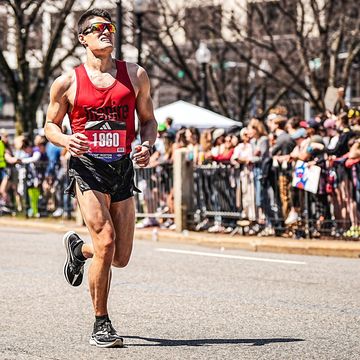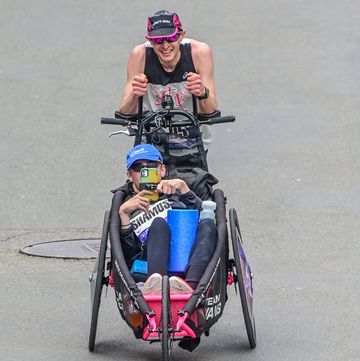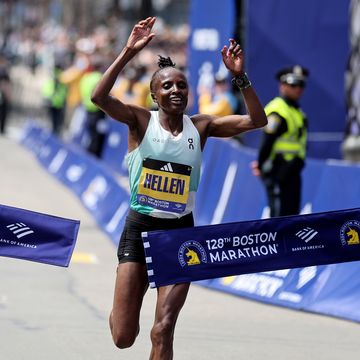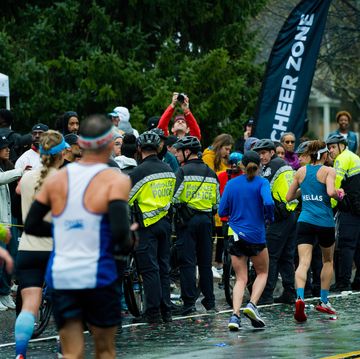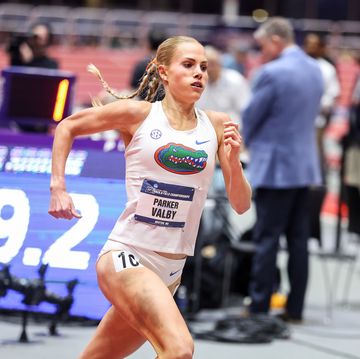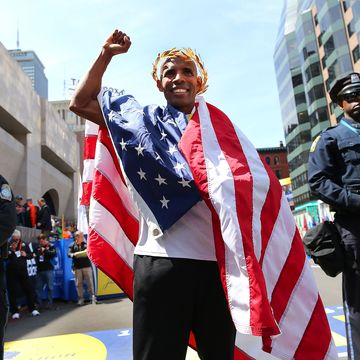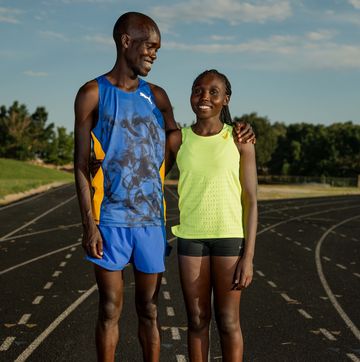Colin Howe liked working as a photographer at the Kalamazoo Marathon—he was one of those people weighted down with camera bags whom runners notice out of the corners of their eyes or hear clicking away from the side of a course.
The event, on May 8, was a nice change from his usual wedding and corporate gigs. It paid $50 an hour, which was far more than the $30 an hour he makes shooting triathlons. And he’d been hired by Gameface Media, a startup that was challenging the traditional race photography model in which runners pay for the photos they order. In Gameface’s model, races and sponsors fund photography so runners get their photos for free.
After Kalamazoo, Howe packed up his gear and waited for the check, which he was told would come in 15 days.
“Fifteen days came and went and I waited another week and thought, ‘This is kind of weird,’” he said.
Two weeks after that, Howe inquired again.
More than two months later, he’s still waiting.
Howe is one of an indeterminate number of Gameface photographers—the company wouldn’t say how many—who didn’t get paid for working at events in the spring because of a combination of cash-flow issues and the cost of an acquisition that ate up some of the $7.5 million in venture financing the company has gotten since it launched in 2013.
Cofounder and CEO David Lavallee said the photographers will all be paid soon. He said runners and race directors won’t see any interruption in services. And Lavallee said the hiccup isn’t an indictment of the free-photo idea. In fact, the company continues to pick up new events and sponsors.
“This is the way race photography will be done,” he told Runner’s World. “Like any innovative company, the core idea is wonderful—we prove every week that it works—but as a young company there are bound to be some bumps in the road and missteps. But for the most part we're way ahead of where we ever dreamed we would be when we started this.”
The stakes, for runners, are high.
Gameface is disrupting the traditional race photography business, which charges from $14.95 to $24.95 for a single digital download.
Instead, it brings in sponsors who underwrite the cost of photos. Runners have to go to the sponsors’ websites or Facebook photos to retrieve their photos, which have the sponsors’ logos on them. But they don’t pay anything.
The trouble, Lavallee said, is that sponsors can take four to six weeks to pay, while Gameface promised its photographers that they’d be paid in two. That problem was compounded by the fact that there was little money coming in during the winter, when there are fewer races. The cost of acquiring a software company in December took a further toll. By spring, cash reserves were low, and payments began to lag.
Photographers began grumbling in June on professional listservs. Many said their experience with Gameface had been good until then. “I'll probably work for them again, but won't count on getting paid on time,” one wrote. “Lots of radio silence,” piped in another. “I was supposed to get paid this week, but nothing yet.”
Howe said the $250 he’s waiting for “is a fairly small amount of money. I’m not devastated by it. But I do know other photographers they owe thousands of dollars to.”
Lavallee said he doesn’t know the specifics of how many photographers remain unpaid, and how much they’re due.
Gameface’s competitors are also watching closely.
“I don’t know how nervous anybody should be, but it gets your attention,” said Michael Skelps, general manager of Capstone Photography, which has historically charged runners for photos. “When somebody comes in to change the race photography business and makes a big squawk about it and then has cash flow problems, it makes you wonder.”
Gameface has changed the race photography business, Skelps said.
“The old athlete-paid model has weakened,” he said. “There are fewer and fewer events where we can make those numbers work.”
Capstone is now increasingly teaming up with clients to offer runners their photos for free, Skelps said. Mainstay MarathonFoto is getting into the free-photo business, too.
In June, Gameface reached a three-year deal with New York Road Runners for races other than the New York City Marathon and NYC Half—those will continue to be photographed by MarathonFoto—and inked a two-year contract with the new Pasadena Half Marathon and 5K, scheduled to debut on January 22. It also picked up Bay to Breakers, which it shot for the first time in May, and sponsors including Merrell, John Hancock, the U.S. Army, and Jeep. Those clients join the likes of Boulder Boulder, the Beach to Beacon 10K, and the San Francisco Marathon.
In an email to its photographers apologizing for the payment delays, the company said its revenue quadrupled last year and was on track to nearly triple again this year; in an interview, Lavallee said that, in spite of the short-term problems, those projections are accurate. The email also said Gameface had cut expenses at headquarters and dumped some unprofitable events.
Lavallee said the software acquisition will allow the company to roll out a new product: Gameface Photo Locker, online profiles for runners into which it will put race images and let users add more.
Howe said he doesn’t know whether or not he’ll shoot again for Gameface. But he said he likes photographing running races for the pleasure of capturing a great image.
When that happens, Howe said, he thinks, “’Man, I hope this stranger I’m never going to see again buys this photo.’”
Editor’s note: Last October, Gameface Media was the photographer for the Runner’s World Half Marathon and Festival.
